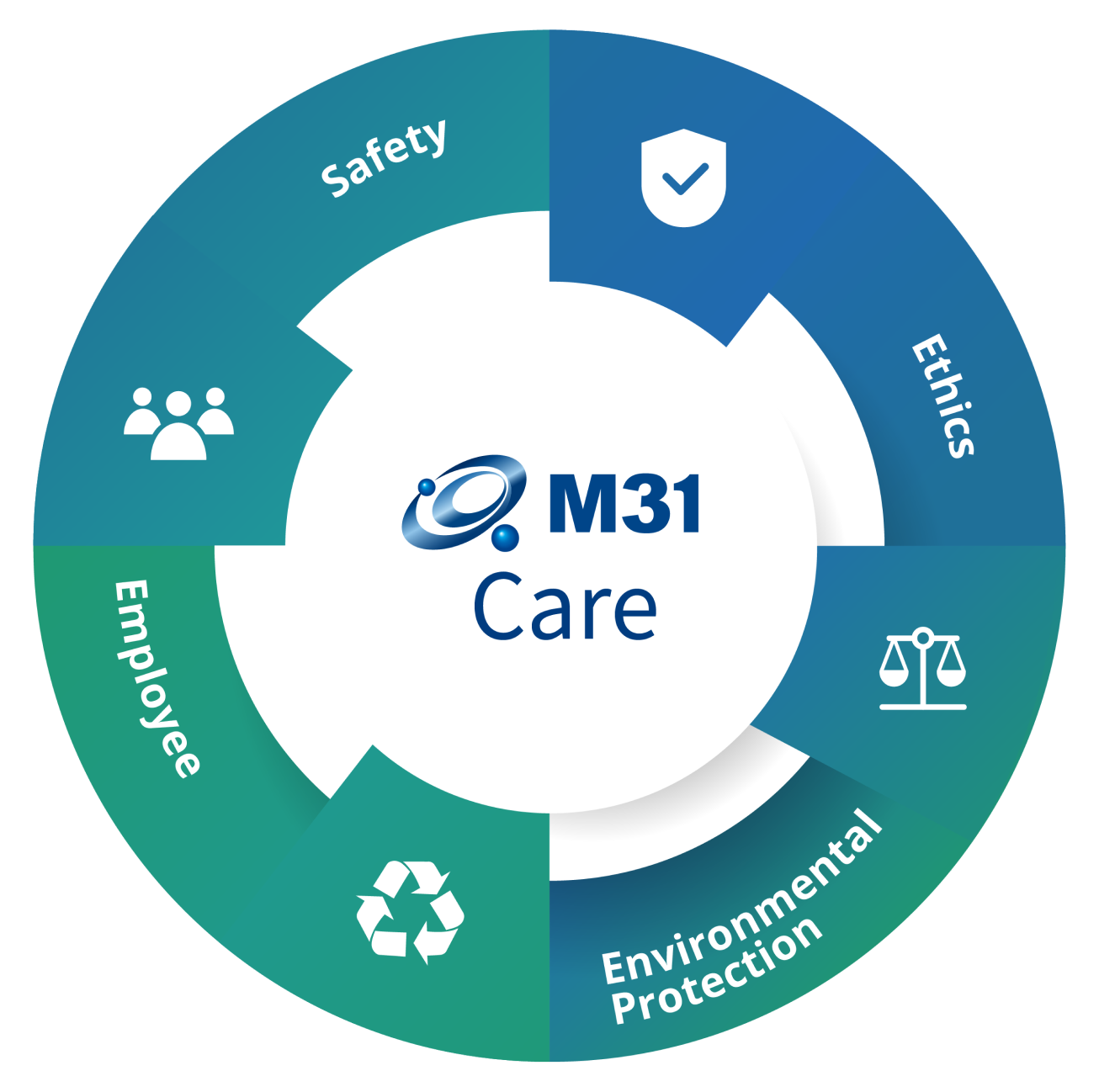
Overview of Sustainable Supplier Management
M31 is committed to building a resilient, transparent, and responsible supply chain by fully integrating ESG (Environmental, Social, and Governance) principles into supplier management processes. From supplier selection and risk assessment to daily management and continuous improvement, the company has established a systematic and sustainable management framework to work hand in hand with suppliers in realizing the vision of corporate sustainability. Key initiatives include:
•Sustainability Self-Assessment System: Starting in 2024, we have fully implemented the “Supplier Sustainability Assessment Survey” system and introduced a “New Supplier Sustainability Self-Assessment Questionnaire” as the basis for supplier selection and risk evaluation. The questionnaire covers areas such as ethical business conduct, human rights protection, occupational safety, environmental protection, and regulatory compliance to ensure that our partners possess fundamental sustainability capabilities.
•Evaluation and Tiered Management: We have incorporated sustainability indicators into the qualified supplier evaluation system. Based on assessment results, suppliers are categorized by risk level, and tiered management strategies are implemented to enhance the overall sustainability performance of the supply chain, with a focus on improving and supporting high-risk suppliers.
•On-Site and Document-Based Audits: Depending on the supplier’s risk level, we conduct document-based reviews or on-site audits to gain deeper insights into their actual practices regarding ESG issues and to provide concrete improvement recommendations that strengthen their sustainability awareness and capabilities.
•Follow-Up and Continuous Improvement: For major violations or high-risk suppliers, we initiate a follow-up and re- evaluation mechanism to ensure that improvement measures are effectively implemented and continuously refined, thereby fostering a positive cycle of sustainable collaboration.
In addition, green procurement has been incorporated into our supplier management strategy, including the adoption of environmental standards and Total Cost of Ownership (TCO) indicators to reduce the overall environmental footprint, further fulfilling the company’s commitment to environmental responsibility.
Through the above mechanisms, M31 actively promotes ethical governance, environmental responsibility, labor rights, and occupational health and safety throughout the supply chain, thereby realizing the core values of sustainable corporate operations.
New Supplier
Evaluation


Supplier
Assessment


Unqualified
Suppliers
Prohibited

Supplier Selection Mechanism and Implementation Overview
Supplier Evaluation and Selection
。In 2024, a total of 25 suppliers meeting specific procurement thresholds were evaluated, with 22 meeting the Company’s requirements and expectations.
。9 new suppliers were added, with a 100% completion rate of the sustainability questionnaire; only those who qualified were included in the approved supplier list.
。Suppliers assessed as high-risk were excluded from the qualified supplier list to minimize potential risks.
Sustainability Audits and Follow-Up
。The sustainability questionnaire completion rate among audited suppliers reached 92%, and the results have been incorporated into the annual audit plan.
。A “Supplier Code of Conduct” is currently under development to institutionalize oversight of both existing and potential suppliers, aiming to foster a collaborative ecosystem that is compliant, eco-friendly, and ethical.
Promoting Green Procurement and Fulfilling Environmental Responsibility
Green procurement is one of M31’s core strategies for fulfilling the Company’s environmental responsibilities. In our IT procurement processes, we have fully integrated indicators such as Total Cost of Ownership (TCO) and environmental certification labels. In 2024, we achieved our goal of 100% procurement compliance with environmental standards.
Furthermore, we have set clear targets to ensure that green products and services account for 20% of total procurement. We continue to expand collaboration with suppliers that meet ESG standards, aiming to reduce our environmental footprint and advance sustainable development.